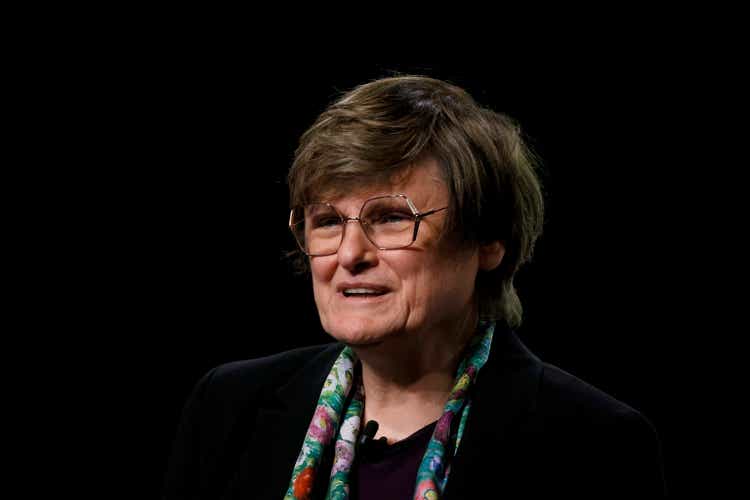Jemal Countess/Getty Images Entertainment
One of the leading scientists who helped shape messenger-RNA-based vaccine technology is not entirely convinced of its potential against cancer, even after groundbreaking data from Moderna (NASDAQ:MRNA) and Merck (NYSE:MRK) to prove the concept.
In 1980, biochemist Dr. Katalin Kariko while working on her PhD in her home country Hungary was confident that mRNA molecules could be used to train the body to manufacture its own medicines.
Decades later, in response to a raging pandemic, Pfizer (PFE)/ BioNTech and Moderna (MRNA) developed COVID-19 vaccines in record time, helping to save millions of lives and keep tens of millions away from hospitals.
Last week, Moderna (MRNA) highlighted its potential against cancer, reporting mid-stage clinical data for a combination involving mRNA-based vaccine mRNA-4157/V940 and Merck’s (MRK) blockbuster immunotherapy Keytruda.
Much to the cheer of the mRNA space, the duo said that in their KEYNOTE-942 trial melanoma patients whose cancer had been completely removed, the combo led to a 44% reduction in the risk of cancer recurrence or death as an adjuvant treatment.
The companies developing similar mRNA-based cancer vaccines, such as BioNTech (BNTX), CureVac (CVAC), and Gritstone bio (GRTS), rose in reaction.
“Immune cells cannot beat a big, huge tumor,” Dr. Kariko said in an interview this week at Semmelweis University in Budapest, where she received an award in recognition of her pioneering work in mRNA-based research.
While results indicate the potential of mRNA vaccines against cancer, it is noteworthy that the trial involved patients whose tumors had already been surgically removed, Dr. Kariko noted, according to Bloomberg.
“Some cells survive, and you can fight those with the vaccine,” Dr. Kariko said, adding that the technology is unlikely to generate an adequate response to eliminate the bulk of the tumor and will probably be most beneficial for patients with only a few cancer cells.
That highlights the importance of shifting “our attention to early detection,” Dr. Kariko noted, referring to blood-based cancer screening tests that help identify patients long before a tumor develops.
Companies focused on early cancer screening include the GRAIL unit of Illumina (ILMN), Natera (NTRA), Guardant Health (GH), and Exact Sciences (EXAS).
Read: Seeking Alpha contributor Edmund Ingham argues that positive KEYNOTE data could validate the view that Moderna (MRNA) has “life outside of vaccines for its mRNA technology.”
Image and article originally from seekingalpha.com. Read the original article here.

